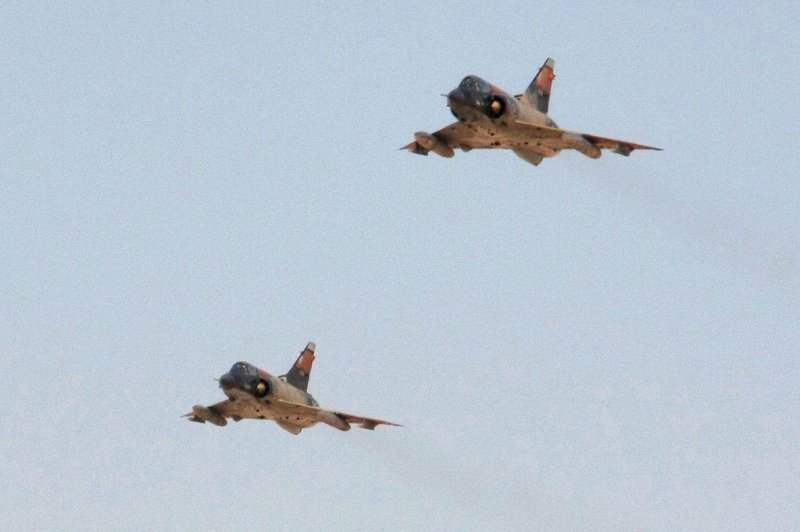Mirage fighter jets of the Egyptian Air Force (CC/ Matt Enright/ U.S. Marine Corps)
CAIRO, Feb. 17 (UPI) -- With Egypt's entry into the war against the Islamic State, prompted by the apparent beheading of Egyptian Christians in Libya, the conflict is outgrowing its original perimeters in Iraq and Syria.
In response to a gruesome video circulated last week, showing 21 members of the Coptic sect killed on a Libyan beach in a mass beheading, Egypt's air force retaliated Monday against IS targets in Libya. Fighter planes targeted IS training camps and weapons stockpiles, and the Egyptian armed forces claimed at least 60 were killed. Thus were both Libya and Egypt drawn into the struggle against a foe with expanding territory and personnel, essentially no allies and in a claimed attempt to install a conservative Muslim caliphate in the Middle East, a methodology of antagonism against every country there.
A U.S. assessment of IS strength indicated 20,000 to 31,500 fighters in Iraq and Syria, and several hundred each in Jordan, Lebanon, Saudi Arabia, Tunisia and Yemen, an unidentified U.S. counterterrorism official told the New York Times. Lt. Gen. Vincent Stewart, director of the U.S. Defense Intelligence Agency, said IS was "beginning to assemble a growing international footprint," although the capability and adherence to IS ideology of affiliates in those countries is unknown. The growing breadth of IS prompted U.S. President Barack Obama to seek authority to pursue it wherever it is found.
"We don't want anybody in ISIL (Islamic State) to be left with the impression that if they move to some neighboring country, that they will be essentially in a safe haven and not within the range of United States capability," White House Press Secretary Josh Earnest said last week.
IS has found fertile ground in the lawlessness in Libya, the country west of Egypt, removed from the theater of combat of Syria and Iraq and led fitfully by two competing governments, one an Islamist administration headquartered in Tripoli; the internationally recognized government escaped to Tobruk. In a country of over 140 tribes and numerous geographical, ethnic and religious differences, many fighting for control of the country, neither government offers much clout.
Libya has been a country in chaos since the 2011 fall of the Ghadafi regime, which left few functioning government agencies or institutions. It shares a largely unguarded border with Egypt, which has been fighting insurgents on the Sinai Peninsula, on its eastern border, for years. At least one of those Sinai groups, Ansar Beit al-Maqdis, has approached IS in search of funding and armaments, unidentified Western officials have noted. While Egypt's retaliation against IS may have been fitting, it must now prepare itself for reprisals on two fronts.
Egypt has called for the U.S.-led coalition to expand its own footprint to include Libya in airstrikes, and even Italy, across the Mediterranean Sea from Libya, is considering military involvement with a suggestion it could commit 5,000 troops to a United Nations-led force against IS.
Noting IS forces in Libya are "now 350 kilometers (217 miles) from our shores," Italian Foreign Minister Roberta Pinotti said in an interview Sunday with the newspaper Il Messaggero, "We've been discussing it for months, but now the need for intervention has become urgent."















